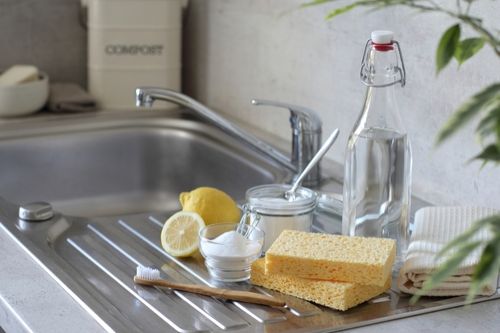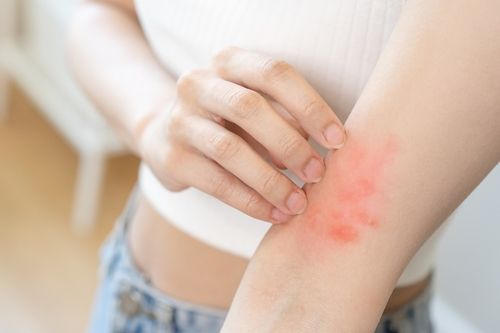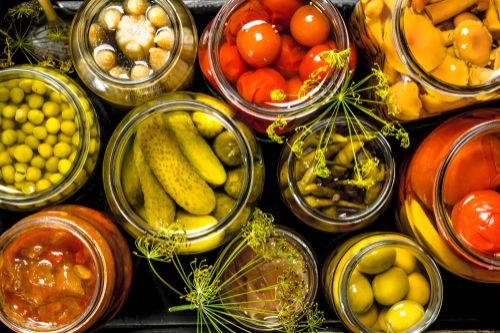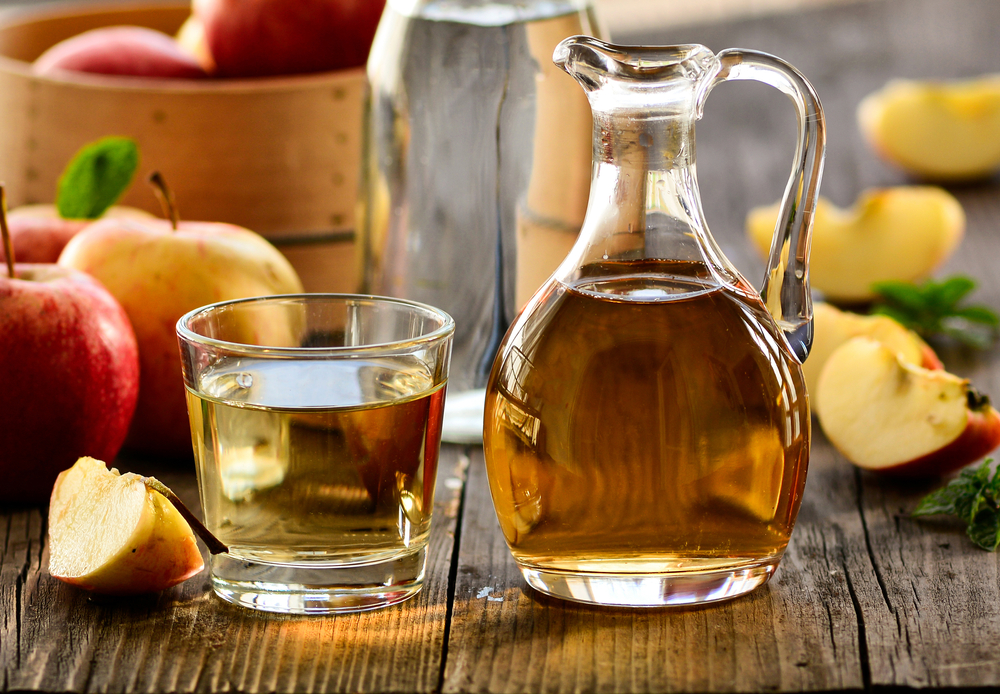Vinegar has served as a healing tool since the earliest days of recorded medicine. Hippocrates used it on wounds more than two thousand years ago, and the basic compound that made it useful then still works today. A gallon of vinegar costs very little and lasts for years without refrigeration. The acidity preserves it and keeps it stable on a pantry shelf through heat, cold, and long-term storage conditions.
For anyone focused on preparedness, vinegar is practical and dependable. It helps with injuries, infections, cleaning, food preservation, and digestive troubles. When professional care is not available, this simple liquid provides real options that can protect your health. The following sections describe ten ways vinegar supports survival and how to use it safely.
1. Wound Care and Disinfection
Vinegar contains acetic acid. This acid disrupts the structure of many bacteria. In situations without antiseptics, diluted vinegar can clean minor wounds and slow the progression of infection. Historical armies carried it for this purpose, and modern research confirms its ability to reduce bacterial load when used in a low concentration. A solution between one and three percent is effective against hard-to-treat organisms that cause chronic wound problems.
Mix one part white distilled vinegar with five to ten parts clean water. Use it to gently irrigate superficial cuts and abrasions. Expect some stinging. After cleaning, cover the wound with a sterile dressing. Avoid using full-strength vinegar because it irritates tissue and delays healing. Deep or serious wounds always require medical attention. Vinegar only buys time in an emergency.

2. Relief for Sore Throats
Apple cider vinegar has a long history as a throat remedy. Its acidity discourages bacterial growth and can ease irritation. A warm mixture of water, apple cider vinegar, and honey coats the throat and provides comfort. It also loosens mucus and reduces the scratchy sensation that appears during mild infections.
Combine one or two tablespoons of apple cider vinegar with a glass of warm water. Add honey if you have it. Gargle for thirty seconds and repeat several times a day. Rinse your mouth afterward to protect your teeth. Severe sore throats, high fevers, or breathing difficulty require professional care.
3. Fungal Foot Problems and Foot Rot
Prolonged moisture, friction, and poor hygiene lead to fungal infections in the feet. These infections slow you down and can progress to serious problems under field conditions. Vinegar soaks create an acidic environment that interferes with fungal growth and reduces odor, itching, and cracking.
Prepare a basin with one part vinegar and two parts warm water. Apple cider vinegar or white vinegar both work. Soak the feet for fifteen to twenty minutes daily. Dry thoroughly afterward. Do not soak open wounds because the acidity causes significant pain. Persistent infections need medical evaluation, but most mild cases respond well to consistent treatment.

4. Support for Blood Sugar Control
Apple cider vinegar taken before meals can reduce spikes in blood sugar. Studies show that small amounts slow the absorption of carbohydrates and may improve insulin sensitivity. This effect does not replace medication, yet it can support metabolic stability when supplies are limited.
Use one or two tablespoons of apple cider vinegar in a large glass of water before eating. Some people prefer taking it at night to support morning levels. Always dilute it because the acidity harms teeth and the esophagus when taken straight. Those with kidney disease or ulcers should avoid regular use. Monitor blood glucose closely if you use vinegar and prescription medications together.

5. Cleaning and General Sanitation
White vinegar is reliable for cleaning many household surfaces. Its acidity dissolves mineral deposits, cuts grease, and reduces bacterial contamination. It provides a safe option during disinfectant shortages or long-term disruptions.
Use it full-strength or mixed with equal parts water in a spray bottle. Apply it to counters, utensils, doorknobs, and other high-contact areas. It works well for rust removal when metal tools are soaked overnight. Do not mix vinegar with bleach because this combination creates toxic fumes. Avoid granite, marble, or cast-iron surfaces because the acid can damage them.

6. Treatment for Bites and Stings
Vinegar calms itching and mild inflammation from common insect bites. Apply full-strength white or apple cider vinegar to a cotton ball and hold it on the bite for a few minutes. It reduces discomfort and cleans the area.
For jellyfish stings, pour vinegar over the affected skin for at least thirty seconds to deactivate stinging cells. Do not rub the area. Remove any tentacles with tweezers or gloved hands. Afterward, soak the area in warm water if you can. Monitor for allergic reactions because vinegar only addresses the local injury and not systemic symptoms.
7. Sunburn Care
Vinegar applied in a diluted form cools sunburned skin and restores natural pH balance. It also provides mild pain relief. Mix equal parts cool water and vinegar, soak a cloth in the solution, and lay it gently on the burn. Repeat until the heat subsides. A vinegar bath also works for larger areas.
Use a very weak solution on blistering burns. Severe burns with fever or extensive blistering require medical attention. Stop treatment if irritation increases.
8. Relief for Sprains and Strains
Warm vinegar compresses are a traditional method for easing swelling and soreness in minor sprains. The warmth encourages circulation and helps move excess fluid away from the injured area.
Warm vinegar to a comfortable temperature. Soak a cloth in it and wrap it around the joint. Cover with a dry towel to maintain warmth for twenty to thirty minutes. Repeat as needed. This method is appropriate only for mild injuries. Any sign of instability, deformity, or inability to move the limb safely requires medical care.

9. Food Preservation
Vinegar preserves vegetables, eggs, and some meats through its acidity. When used in pickling, it prevents harmful bacterial growth and extends the usable life of food without refrigeration. This method sustained pioneers through long winters and still serves homesteaders today.
Use white vinegar with five percent acidity for reliable results. Submerge foods fully in a brine of vinegar, water, salt, and sugar. Do not dilute the solution beyond established safe recipes. Discard any preserved food that develops mold, slime, or an off smell. Strong acidity remains the key factor that prevents botulism.
10. Digestive Support and Heartburn Relief
Some people experience heartburn because of low stomach acid. A diluted mixture of apple cider vinegar and water taken before meals can improve digestion and reduce discomfort. It may also help with mild diarrhea by discouraging harmful bacteria and supporting hydration when combined with water, honey, and salt.
Combine one to two teaspoons of apple cider vinegar with eight ounces of water. Drink before meals or at the first sign of indigestion. Avoid this approach if you have ulcers, gastritis, or severe reflux. Discontinue use if it worsens symptoms.

Conclusion
Vinegar provides simple solutions for many problems that arise when medical care, electricity, or supplies are limited. It cleans wounds, eases sore throats, supports digestion, preserves food, and helps maintain sanitation. It stores well for long periods and requires no special conditions. Every homestead, cabin, and emergency kit benefits from keeping several gallons on hand. The uses are straightforward and rooted in long experience. In a crisis, this common liquid can protect your health and extend your resources when you need it most.






Read full article here


